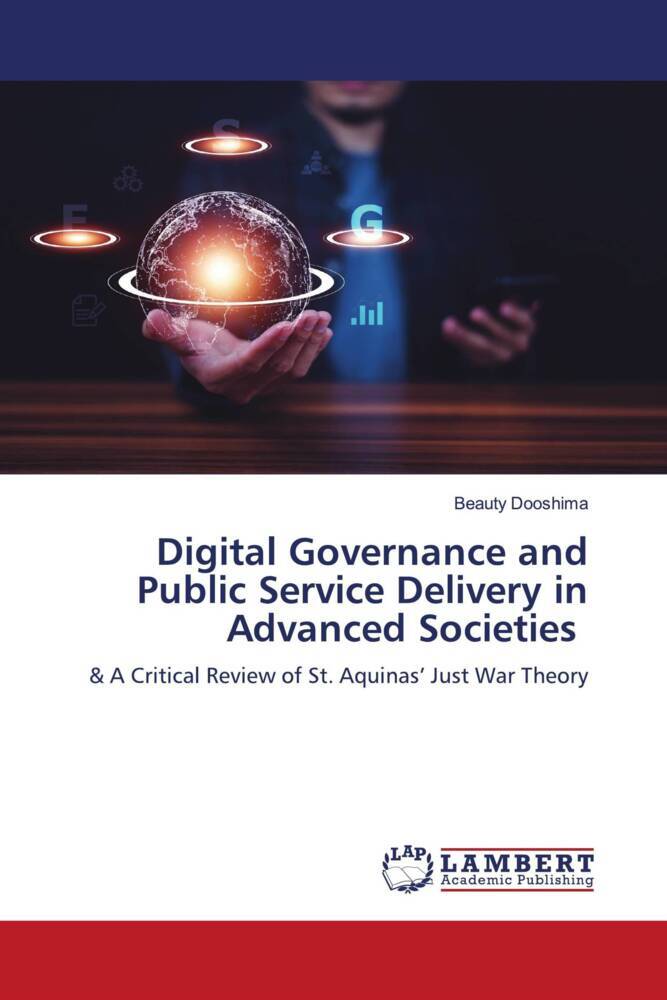
Zustellung: Do, 24.07. - Mo, 28.07.
Versand in 5 Tagen
VersandkostenfreiBestellen & in Filiale abholen:
This book integrates two distinct but significant inquiries: the impact of digital governance on public service delivery in advanced societies, and a critical examination of St. Thomas Aquinas' Just War Theory within Christian ethics. The first part compares Sweden and Canada, exploring how digital tools enhance efficiency and citizen engagement through frameworks like New Public Management and Digital Era Governance. Sweden's cohesive digital governance, marked by robust data-sharing and open government, results in integrated services and high citizen trust, whereas Canada faces fragmented initiatives and challenges stemming from legacy systems and inconsistent policies. Qualitative analysis reveals Sweden's systematic approach as more effective, recommending Canada adopt clearer digital priorities, inter-agency collaboration, and improved infrastructure to enhance service delivery. The 2nd part examines Aquinas' Just War Theory, which sets three essential criteria for a just war: legitimate authority, just cause, and right intention. Aquinas argued that only sovereign powers may declare war, wars must address real injustices or aggression, and the ultimate goal should be peace.
Produktdetails
Erscheinungsdatum
05. Juni 2025
Sprache
englisch
Seitenanzahl
52
Autor/Autorin
Beauty Dooshima
Verlag/Hersteller
Produktart
kartoniert
Gewicht
96 g
Größe (L/B/H)
220/150/4 mm
Sonstiges
Großformatiges Paperback. Klappenbroschur
ISBN
9786208449285
Bewertungen
0 Bewertungen
Es wurden noch keine Bewertungen abgegeben. Schreiben Sie die erste Bewertung zu "Digital Governance and Public Service Delivery in Advanced Societies" und helfen Sie damit anderen bei der Kaufentscheidung.









